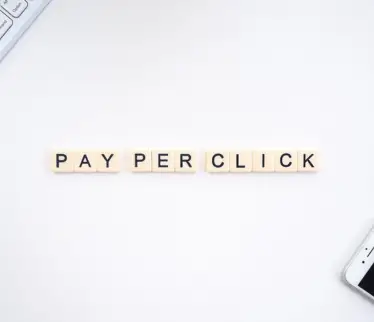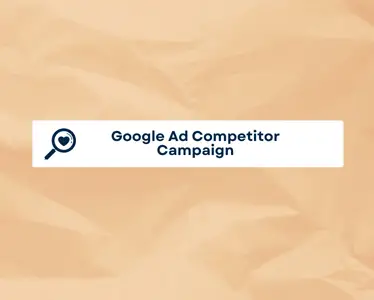
Table of Contents
A Beginner’s Guide to Mastering Paid Ads
So, you’re thinking about becoming a PPC specialist? Well, you’re in the right place! The world of PPC (Pay-Per-Click) is exciting, dynamic, and yes, a little confusing at first, but don’t worry. We’re here to break it down, sprinkle in some humor (because who doesn’t need a laugh while learning about ads?), and make it super easy for you to understand.
Let’s get into the nitty-gritty of becoming a PPC pro!
Step 1: What Exactly is a PPC Specialist?
A PPC specialist is like the wizard of the internet – they’re the person behind those ads you see on Google, Amazon, and even Facebook that make you think, “Wow, how did they know I was just searching for a new pair of socks?” These specialists create, manage, and optimize paid advertising campaigns, ensuring businesses get more clicks, conversions, and customers.
If you’re thinking, “That sounds a bit like magic,” well, you’re not far off. Except instead of a wand, you’ll be using tools like Google Ads and Amazon PPC to cast your spell.
Funny tip: You might not get a wizard’s hat, but once you master PPC, you’ll feel like you can control the internet—at least a tiny part of it!
Step 2: Learn the Basics of PPC
Before you go ahead and call yourself a PPC specialist, you need to understand how PPC works. Here’s the simple version:
- Advertisers bid on keywords (words people search for on the internet).
- They create ads and pay for clicks (hence Pay-Per-Click).
- The goal? Getting people to click on those ads and eventually buy something or sign up.
Easy, right? Well, kind of. The real challenge is making sure you’re paying the right amount and getting enough people to actually click.
If you’ve ever clicked on an ad yourself (and who hasn’t?), you’ve already experienced PPC in action. It’s like online window shopping, but with better targeting and less walking.
Step 3: Get Hands-On with PPC Platforms
Alright, enough theory. Let’s get to the fun part: playing around with PPC platforms! The most common platforms you’ll use as a PPC specialist include:
- Google Ads (for search ads, display ads, and YouTube ads)
- Amazon PPC (for targeting shoppers directly on Amazon)
Both of these platforms have their quirks, but once you get the hang of them, you’ll be flying through keyword bidding, ad creation, and tracking like a true pro.
Fun fact: If Google Ads is like running for mayor of a city, Amazon PPC is like opening a shop in the middle of a busy mall – people are already there to buy stuff!
Step 4: Study, Practice, Repeat
Becoming a PPC specialist doesn’t happen overnight (sorry, no shortcuts here). You’ll need to study, practice, and then… practice some more. There are tons of free resources available:
- Google Skillshop (for Google Ads)
- Amazon Advertising Learning Console (for Amazon PPC)
- And let’s not forget YouTube videos (because we all love a good tutorial, right?)
Start by creating a few practice campaigns. Experiment. Fail. Succeed. It’s all part of the learning curve!
Step 5: Get Certified (It’s Not as Scary as It Sounds)
If you want to make your resume stand out or just feel extra official, you can get certified. Google Ads offers certifications, and you can get a badge to show off your skills. It’s not rocket science, but it will give you credibility in the field.
Pro Tip: Having a certification makes you look like you really know your stuff, kind of like putting “Master Chef” on your apron (even if you’re just cooking up eggs).
Step 6: Network and Join the PPC Community
Once you’ve learned the basics and got some certifications under your belt, start connecting with other PPC specialists. Join groups on LinkedIn or Facebook, attend webinars, and read up on the latest PPC news.
This isn’t just about making friends (though that’s a bonus) – it’s about staying on top of the ever-changing PPC landscape. Plus, having people who understand your weird obsession with keywords is always nice.
Step 7: Keep Up with Trends – Especially Amazon PPC
Now, if you’re focusing on Amazon PPC, keep an eye on changes in Amazon’s ad platform. Unlike Google, Amazon is more focused on selling products directly, which means your strategy needs to be a bit different. Instead of just getting clicks, you need to think about sales conversions, too.
And trust me, keeping up with Amazon’s changes can feel like trying to catch a runaway shopping cart. But once you get the hang of it, the rewards can be huge!
Bonus Tip: Just remember, even if you feel like giving up, someone out there is paying $10 for a click just to sell a $5 product – and that could have been you… until you learned better!
Step 8: Build Your Portfolio
When you feel ready, start working with small businesses or even friends who need help with their ads. This will give you real-world experience and help you build a portfolio. Having a strong portfolio is key to becoming a sought-after PPC specialist.
Plus, it’s great to be able to say, “Hey, I helped that local coffee shop sell 100 more cups of coffee this month!” Who doesn’t want to be responsible for more caffeine?
Step 9: Stay Curious
The world of PPC is always changing. New tools, new platforms, new strategies… it never gets boring! A good PPC specialist stays curious and keeps learning. So read up, watch webinars, test out new ideas, and most importantly, have fun with it.
Final thought: Becoming a PPC specialist might not make you a magician, but it will definitely make you someone who knows how to make a big impact with the right clicks!
Ready to Dive In?
And there you have it—your beginner’s guide to becoming a PPC specialist. It’s not as complicated as it seems, and with a little bit of patience, you can go from being a keyword newbie to a PPC expert.
Now, grab a cup of coffee (or two) and start your journey into the world of paid advertising. Just remember, the internet never sleeps, so you’ll always have something new to learn.
Good luck, future PPC wizard!

Aitizaz Rahim is a dynamic Digital Marketing and SEO expert, empowering businesses worldwide with proven strategies. As the founder of Masterblogerz, he shares actionable insights to help others master the digital marketing world.

